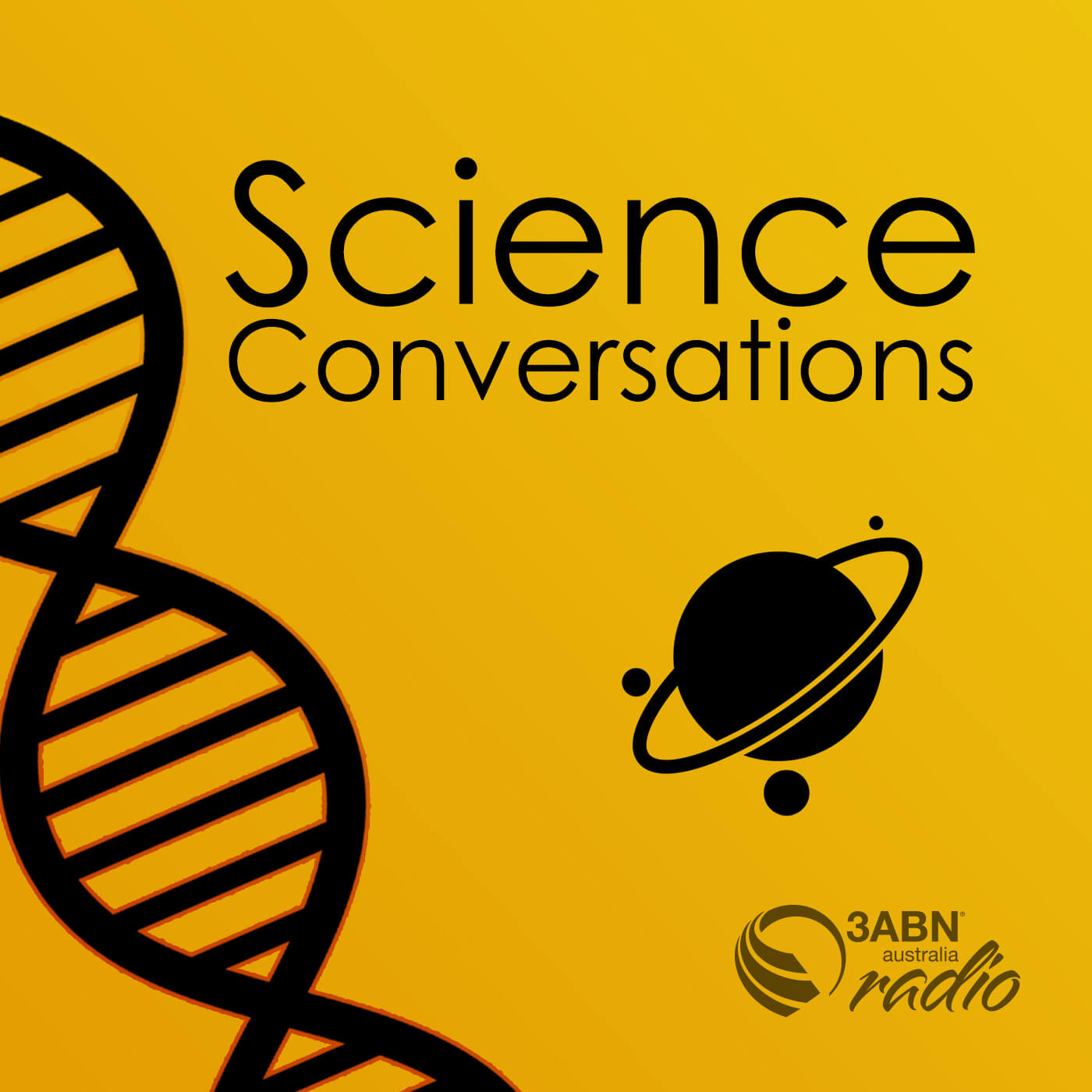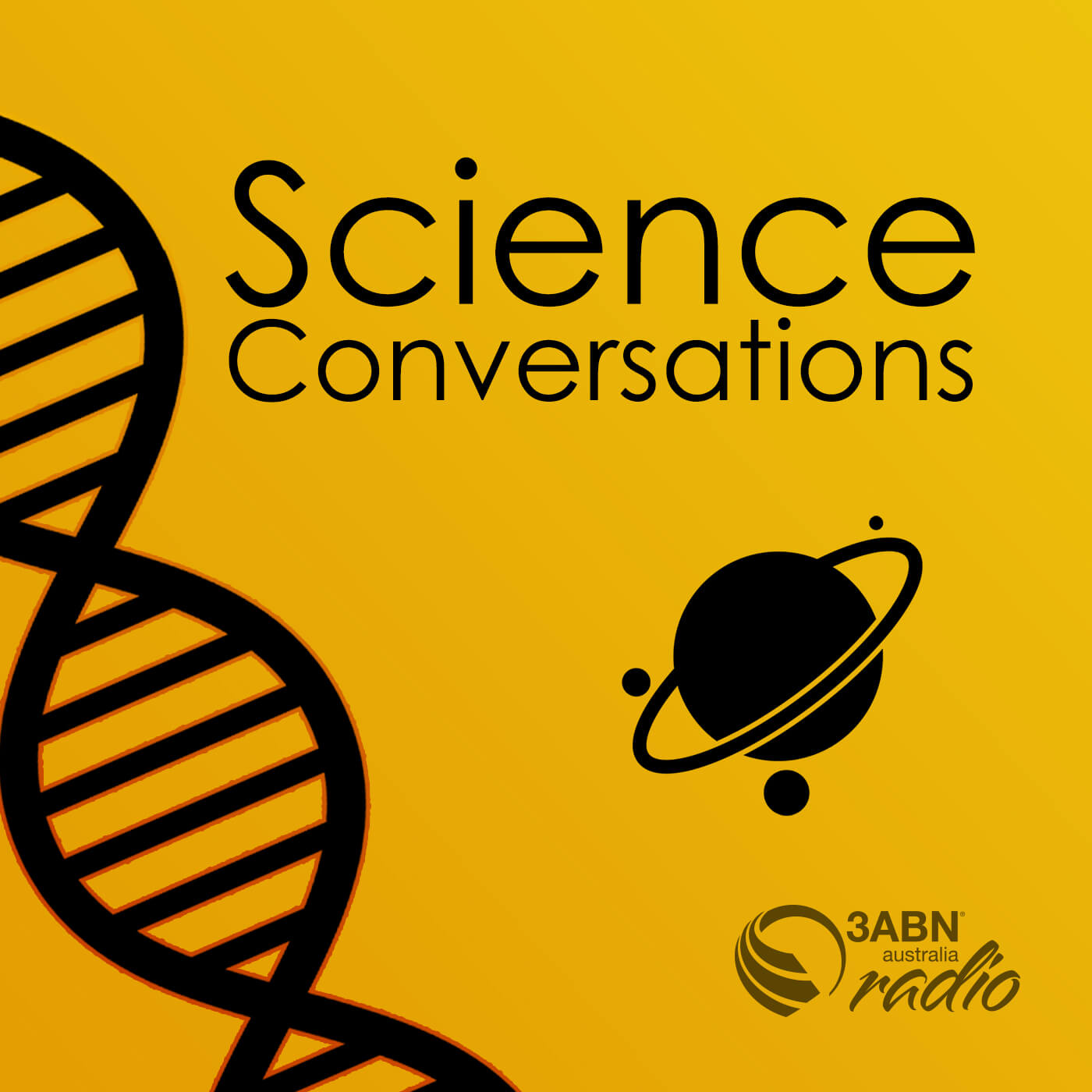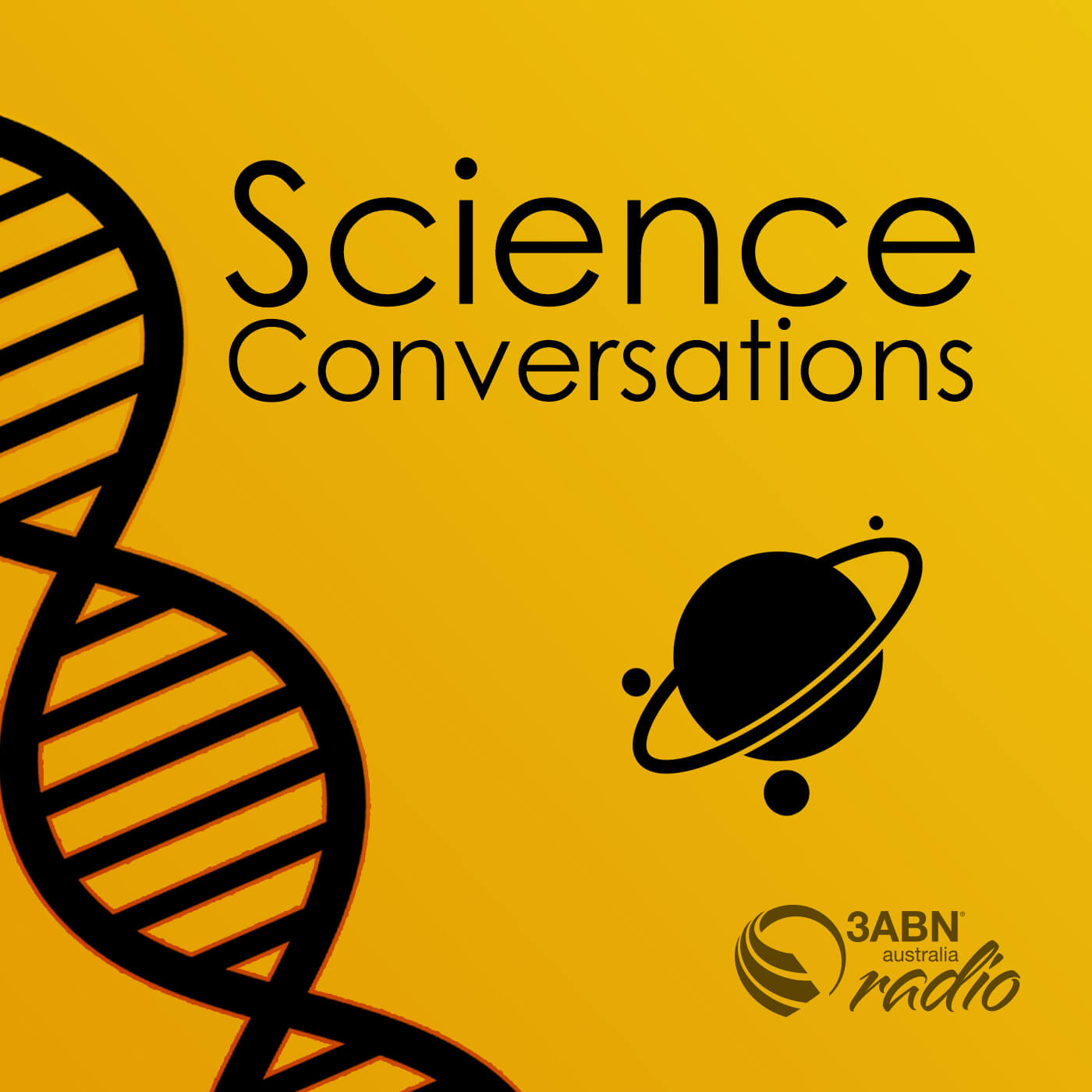Episode Transcript
Welcome to Science Conversations. I'm Kaysie Vokurka. Are there any scientists that believe in creation? Joining me to discuss part three of this topic is Dr. John Ashton. Welcome to the program once again, Dr. John.
SPEAKER 2
Hello, Kaysie.
SPEAKER 1
Dr. John Ashton has written a book entitled Evolution Impossible: 12 Reasons why Evolution Cannot Explain the Origin of Life on Earth. And we've been talking about some of his content in chapter 12. And in our previous discussions, we mentioned many, many scientists and talked about the importance of really the evidence that they are putting forward as the basis for why they are not believing in the evolutionary worldview or validating that perspective. And we're going to talk a little bit more about some of these things. And so one of the first ones we can talk about is Dr. or Professor David Gower. Now he is quite a prominent professor, Emeritus Professor of Stereoid Biochemistry at the University of London, holding both PhD and Doctor of Science degrees in Biochemistry from the same university. So tell me what does he say about these, his perspective of evolution?
SPEAKER 2
Yes, right. So people like Professor David Gower are people that really those people that are clinging to evolution, they should really be taking notice. He's a very distinguished biochemist who elucidated some of the control mechanisms behind human hormones.
SPEAKER 1
Okay.
SPEAKER 2
And the extremely complex chemistry that underpins the hormone regulatory systems that apply in our body. And of course, hormones control and regulate so many processes from regulating body temperature and all those sort of things, reproductive systems, digestion, all these sort of things are controlled by hormones, which themselves have regulatory systems controlling them so that we have just the right balance. And essentially says that the order and extraordinary complexity of this is consistent with a creator. Essentially he said there had to be a creator, there had to be a super biochemist that created this system. And it's interesting, actually, I just thought of it then. I remember being at a very large chemistry conference, and at the beginning, one of the plenary lecturers there talked about the great biochemist in the sky, referring to God. And of course, he got away with that at the conference. He was such an eminent scientist. That was not David Goer, but another eminent biochemist. And I think this is the important thing that, again, many people don't realize that these prominent scientists that have made the scientific discoveries that underpin much of our complex biochemistry, if you look at our textbooks on human biochemistry, they generally run in the order of about 800 to 1,000 pages, this sort of thing. The biochemistry is extremely complex. And this is one of the reasons that people, and there are other biochemists like David Goer, but he's a particularly eminent biochemist. And he contributed, of course, to the book in six days.
SPEAKER 1
Okay.
SPEAKER 2
You can read all his arguments there in that book.
SPEAKER 1
Interesting. And so you've another person who's also in the chemistry space is Dr. John Cramer. Cramer? I don't know how you say. Tell me about him, because he's arguing also from some of these sort of molecular biochemistry levels that, yeah, they're so complex, aren't they?
SPEAKER 2
Yes, yes. So he's another very, very senior biochemist in the, you know, Canadian group there. He worked at, I'm just trying to think of what the university was there in Canada. But he was also part of... Agri Canada. No, no, no. He taught it. Just trying to think of what the university is. Anyway, it just slaps my mind there. And he sort of was one of the leaders of the team that led BD approval. of canola for human food. And I'm pretty sure he served for a number of years as the editor for the journal Lipids, which is the top science journal dealing with fat metabolism and that sort of biochemistry. And he's done quite a bit of work in this area. And one of the very interesting points that he raises is that in the theory of evolution, they've got to have a story, right? And so one of the stories is that the These bacteria that can survive very high salt concentration, very high temperature, have been named Archaic Bacteria, or I forget their actual names there, but they're given a name that implies that they are very old, right? Because according to this materialistic, naturalistic worldview, these were the bacteria that formed the first sort of forms of bacteria. that formed in these vents, you know, hot thermal vents and salt solutions, so forth, are believed to have been the forerunners then of the bacteria. And so he's done studies, of course, in regard to the relation to fats in these structures, because again, all a lot of these structures, cell membranes and these sort of things are held together by lipid type molecules. And essentially what he points out is that the structure and the DNA required to encode for these particular fats and so forth that have these properties that enable the stabilities of these are in many ways more complex than just regular bacteria. Really? So how could they be the forerunners?
SPEAKER 1
Wow.
SPEAKER 2
But what he says is, as we're this is being taught to young people by giving them that name that implies that they're old, But this is not on the basis of any scientific evidence that they are the older bacteria. Matter of fact, if you look at it, they would be more recent bacteria because of the greater complexity of the biochemistry underpinning their systems. One of the metabolism, whereas in later cells as a mono system, they actually have a dye system involving sodium ions. And so something like that. from memory of his work. So this is sort of thing that he points out that often things are named on the basis of a particular worldview, not on the basis of evidence, but in so naming, they convey the implication that there is evidence. And so this is again where we need to really drill down into what the evidence actually is. And Cramer is John Cramer. I've met him personally. and spoken with him personally. He's a very, very strong creationist from biochemistry. He's a brilliant biochemist and University of Guelph. That's where he's from. Yeah, and he's trained so many PhD students there at the University of Guelph. A very eminent scientist there and very, very strong creationist. Oh, and again, his research and as he says, he's finding as he's looked into things, it all supports the impossibility of evolution and powerfully supports creation by a super intelligent creator. Yeah, he's a very, very strong and quite outspoken creationist, John.
SPEAKER 1
Wow. Dr. John Mackay. Very, very fascinating perspective there that he has shared. Now, there's a couple of guys who are really professors in genetics who give their angle on things, and you've got in your chapter, Dr. James Allen, who was former senior lecturer in genetics at the University of Stellenbosch and holds a PhD from the University of Edinburgh, Scotland. So tell us a bit about what he's contributed as evidence and arguments for why he believes in creation.
SPEAKER 2
I think in our last session you mentioned are there any scientists who were atheists who became creationists? And I think from memory, Dr. Allen, Professor Allen, is one of those scientists who did later convert from atheism and became a Christian as a result of that. And of course, yes, he'd studied in genetics there. And as he looked at, he saw, hang on, again, the standard genetic theory that's being taught doesn't add up when we actually look at the evidence. and I think one of the arguments, for example, he raises is that, okay, you've got these different, the claim is that humans evolved from some ape-like forebear and chimpanzee, chimpanzee, for example, split off as well. And there's a difference of about, whatever it is, 5,000 genes or something, a difference or whatever. In actual fact, I think now they've done the complete human genome was just published fairly recently. There's a massive amount of difference actually.
SPEAKER 1
Oh, wow.
SPEAKER 2
This was in the area of the genome that had been coded beforehand rather than what was the junk DNA. Now they've encoded all that. The difference is much larger. But he points out, okay, how come there was no, there in, I think, cytome C, mechanism. There's a whole lot of possible variations that could have evolved, a very large number. And he says, okay, how come in this evolutionary process that there's no difference? Why hasn't a different system evolved? Why is it the same system in virtually all of the mammals? And so this is one of the interesting, you know, if you're going to claim that evolution occurs and we say, why are there certain systems that just haven't changed, even though there's a whole lot of quite valid possibilities of similar systems where they could have evolved and changed? So this is quite an interesting argument. I can't remember the exact details. The exact details are in his chapter in the book. But that's a very insightful argument that he brings up there, a very, very powerful argument. And he actually developed quite a lot of arguments from the point of genetics.
SPEAKER 1
And there was another fellow here whose name is Dr. John Baumgardner?
SPEAKER 2
Baumgardner, yes. John Baumgardner.
SPEAKER 1
And he is a research scientist or worked as a research scientist in the theoretical division of the Los Alamos National Laboratory, sorry. and has a PhD in geophysics from University of California. Tell us a bit about his experience and perspective. He had a lot to contribute, it seems, in his chapter.
SPEAKER 2
Yes. Well, John Baumgardner, of course, his background is in mainly in physics and geology, but also as understanding in statistics. And so what he did was, because Physicists, of course, look at the structures of the atom and this sort of thing. Once we get bigger than atoms, we sort of tend to get into chemistry a bit more. But what he did was he, in his chapter in the book, in Six Days, and also in his chapter in the book, Evolution Impossible, and of course, people can read Dr. Allen's arguments too. in brief in this chapter in this book as well, in Evolution Impossible. But Baumgardner, essentially what he did was he looked at the probability of chemical reactions occurring in terms of the atoms. How many permutations are four atoms? How many atoms are there in the universe, this sort of thing? And if so many interactions occurred per second, how many interactions would need to occur for to uncover enough interactions to produce a possible code that could make a basic protein. So that's essentially what he pointed out. And essentially what he points out is that even if the universe were hundreds of trillions of billions of years old, it would still wouldn't be enough time for enough mutations to occur to produce viable codes for proteins. And this is something that is beyond most human minds to understand. And it's very interesting that Dr. Eugene Coenen, who's one of the senior geneticists at the National Institute of Health in the United States, back in 2007, published a paper essentially arguing the same thing as John Baumgardner did, saying that the possibility of a simple reproductive system, and he went a little bit further than just basic proteins require, but was so huge, well, so small that even if there were as many universes as there are atoms in the universes, you would still need more. You'd need almost an infinite number of universes to exist. And we just happen to be in the universe where it happened. In other words, it's impossible. When we look at the chemistry and the possibility of these reactions occurring by chance, it's absolutely impossible. And so his work, yeah, substantiated the very calculations that Baumgardner did, exactly the same to show again, evolution is impossible. From a mathematics point of view, evolution is absolutely impossible. We must have been creation. The overwhelming evidence is in support of a Creator.
SPEAKER 1
Fascinating perspectives and to just hear how they've come from their own specialty and being able to see these different angles to argue from is really interesting. And I know that in this chapter there's even more. Some of these guys have presented even other arguments as well. And so it's very, very interesting to get down to that evidence and see what they've actually said. So thank you so much for sharing about this whole topic. Very interesting perspectives. Next time we are going to examine the question, is there such a thing as an intervening God? Be sure to join us.


